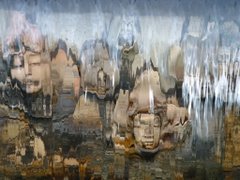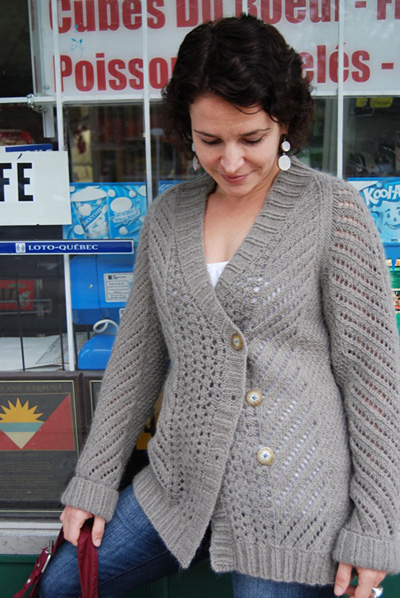Can These Bones Live?
by Rivkah
Ezekiel 37:1-14; Romans 8:6-11; John 11:1-45
I don’t know about any of you, but I got a terrible case of spring fever this week. Temperatures soaring into the 70’s, daffodils everywhere, knowing that by the end of this month, I will have a garden to plant in. It made it very hard to sit inside and work on this sermon, I tell you. I wanted to be out soaking up the sunshine, getting my hands in the dirt. I spent quite a lot of time pouring over seed catalogs this week, wondering what I would like to grow this season.
When God is preparing to bring life to the bones, he tells the prophet that not only will the bones live, but they will also know that Yahweh is Lord. Those statements inherently belong together. Living and knowing Yahweh are practically synonymous. That is how we live, by knowing who Yahweh is.[i] And it follows that if those bones do indeed know who Yahweh is that they will praise him as well. And how could they not? Knowing Yahweh is to know what wondrous things Yahweh has done, like bringing life to dead, dry bones. Praise God, indeed!
How foolish this must have looked. The Lord's prophet, standing in the middle of a pile of dead bones, is telling them not to give up hope. If I was Ezekiel, I would have gently suggested that the Lord first bring these bones back to life, and then I'll do a little preaching. "See," I'd say, "See what God can do?" But that is not the way of God, who calls us to believe without seeing. That is because the Lord's words always make room for hope. And it is the hope that brings us back to life. Hope rises up from our bones, and chooses to believe in spite of how it is.
Walter Brueggemann has written that hope proclaims that the way things appear is precarious. So we dare not absolutize the present. Don't take it too seriously. Don't bank on today because it will not last. Thus, hope is revolutionary. [ii]
Jesus is commanding the dead to live again too. His aim too, is that by raising the dead, the living might praise God’s name. But before he gets to that point, he has to make his way back to
I don’t know if Jesus had spring fever, but his disciples undoubtedly thought he had some kind of illness, wanting to go back to the place where he had just almost been stoned to death. Not only that, but he’s claiming he can raise a man dead already for a few days. Many of them went, I’m sure, out of sheer curiosity, that outweighing their fear of the stoning.
Did you catch the part in the reading where Thomas, always the doubter and cynic, says, “Let’s go too, so we can die with him?” You’ve got to hear it with the extra side of sarcasm that this is delivered with. They’re going back to
I’ve always wondered if Jesus wasn’t testing the waters a little here with the raising of Lazarus, seeing how people would react to the idea of reanimating a dead body. Would they believe that such a thing was possible, even after seeing it with their own eyes? Some yes, some no, it would seem. No one understands. No one expects that life can come out of death. No one grasps that Jesus himself is the life-giving power of God.
There is so much protesting before the resurrection of Lazarus that you might think that these people didn’t want Jesus to bring Lazarus back to life. And I daresay that most of them probably did not. That would completely upset the natural way of things. Smelly, decomposing corpses are not supposed to stand up and walk around again. I imagine that the very idea of that sort of upset of reality invoked extreme discomfort and fear.
The lectionary doesn’t actually have us read what happens next, but I’m going to tell you that not all of those Jews believed in Jesus because of what happened. Some of them went off to tell the religious authorities about what he’d done. They were very frightened of this man who had the power even to bring life from death. The authorities respond the only way they know, with violence. Not only do they begin the plotting of Jesus’ own death, but the religious leaders are even plotting to get rid of Lazarus.
There is not much rejoicing at the raising of Lazarus. Even Mary and Martha are a little stunned at this unnatural turn of events. Martha has said that she indeed believes that there will be a resurrection in the end times, but this is absolutely not what she expected. It turns out to be a menace to those who think they control the future. It turns out that this story of the giving of life then leads to a story of death. We know what is coming in the next couple of weeks; we know that this resurrection is just a prelude to the one that is to come.
Now the disciples and the others have seen the power of God to raise the dead. This will give them a glimmer of hope when Jesus himself is in the tomb. Jesus’ resurrection is the ultimate display of this power. Death and sin are defeated once and for all. And that enormity is what so frightened the religious leaders. In the face of God’s power, they saw how powerless they themselves truly were. They who believed themselves to be the ultimate authority in the religious world were brought to their knees by the power of God as displayed through Jesus and his raising of Lazarus from the dead.
We, too, are powerless. Powerless to solve the problems of sin and death, to overcome them on our own. God and only God has power over them. God can bring flesh and bone together. God can bring Lazarus out of the tomb, God can erase the power of sin.
The apostle Paul told the believers in
So we will take our stand beside Ezekiel and proclaim our hope to the dry bones. "Thus, says the Lord, I will cause breath to enter you and you shall live!" You who gave up hope, who gave up dreaming--who have settled for a comfortably routine life of work, bills, and dirty laundry. You who think your best years are behind you. You who think the Lord God has forgotten all about your little life.
To you, we say, "Arise!" Arise from the heap of discarded dreams. Arise to discover that the Holy Spirit is breathing life back into you. Arise to live with magnificent hope! Because the world is dying for you to believe God is not done. Amen![iii]
[i] Brueggemann, Cousar, Gaventa, Newsome. Texts for Preaching: Year A. Louisville, KY: Westminster/John Knox Press, 1995.
[ii] Craig Barnes "Resurrected hopes - Living by the Word - Ezekiel - Brief Article - Excerpt". Christian Century.
[iii] ibid.



No comments:
Post a Comment